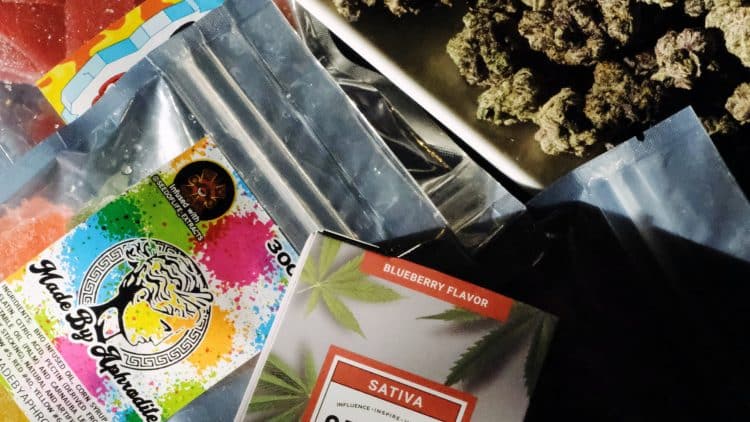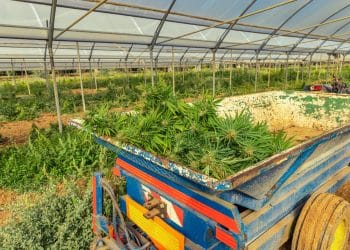Washington was one of the first states to legalize adult-use recreational cannabis, and has been reaping the benefits of a thriving market since. Washington’s market doesn’t look like a lot of other legal cannabis markets, though. In a world dominated by large corporate multi-state operators, Washington has managed to cultivate an environment that supports local small business owners, creating a more diverse marketplace and one with loads of product options. So, what sets Washington apart? That all comes down to a couple of key legislative choices the state made when it pushed to legalize cannabis.
Washington Banned Retail Vertical Integration
Depending on your perspective, vertical integration can be a great way to bring down costs, control product quality, and compete more effectively, or it could be the very thing keeping your small business under the boot heel of the larger entities in the space. In short, the issue of vertical integration is complicated. That’s why some states, like Washington, partially banned it in their legislation, while others have actually required it. Meanwhile, you’ll find a mix of everything in-between.
When Washington first legalized adult-use recreational cannabis, the state included a provision in its legislation that banned cannabis producers and processors from having any financial interest in a cannabis retailer, effectively eliminating vertical integration in the retail space. [1] More recently, the state expanded that legislation to include more ways that a cannabis business could financially benefit from a relationship with a retailer. [2]
This move means that retailers in Washington must remain independent from the companies producing and processing cannabis. As a result, cannabis producers and processors need to compete with one another for retail shelf space. Companies charging too much or producing lesser quality products are probably not going to find their way to retail shelves, and if they do, they’re not going to stay there for long. This competition benefits both retailers and consumers.
Additionally, it means that the smaller players in the production and processing world have a much more even playing field with their larger competitors. If smaller brands can produce quality products and build relationships with retailers, they’ll get their products in front of consumers. In essence, the legislative structure fosters healthy competition.
Vertical Integration Only Benefits the Big Players
Generally speaking, in any industry, vertical integration only benefits the largest players with the deepest pockets. The practice goes back to the days of the Industrial Revolution when the largest companies, like Standard Oil and Carnegie Steel, realized that they could reduce costs by buying out the entire means of production and sometimes distribution. For a modern context, think of Amazon selling their own products and owning their own delivery service or Netflix making their own movies and shows. These are big companies throwing their weight around to cut their own costs and pressure the competition.
Meanwhile, the smaller players simply can’t vertically integrate. Imagine having a small online store and deciding to start your own nationwide delivery company to save on shipping. Not only does it not work, it doesn’t even make sense.
In the cannabis world, vertical integration means a gigantic company with operations in multiple legal states can set up a production and processing operation in a state and open multiple retail locations that only carry the products they produced. The prices would be much lower than the competition that had to purchase their products through a wholesaler, and before long, none of the smaller independent retailers can compete on price.
Washington Blocks Out-Of-State Licenses
Washington has one more clever policy that keeps the state’s cannabis market healthy and accessible to small businesses: Washington only awards licenses to people permanently residing in the state. This is true of companies as well. [3] In order for a corporation to get a cannabis license in Washington, the organization needs to be formed in Washington and the leadership must meet the state’s residency requirements.
Due to this clever policy, large multi-state corporations are barred from doing business in the state, unless they’re primarily based out of Washington. It ensures that Washington’s legal cannabis market benefits the state’s citizens and again, encourages more small businesses and healthier competition in the market. Clearly, it has to be working too, because Washington has 484 active retail licenses, 915 combined producer/processor licenses, 233 processing licenses, and 155 production licenses. [4] Numbers that large are a clear indicator of a thriving market where numerous businesses are able to compete. Concerning this aspect, anyway, new legal markets may look to Washington as an example of how to foster the cannabis market through legislation.
Resources:
[1] https://app.leg.wa.gov/RCW/default.aspx?cite=69.50.328
[2] https://apps.leg.wa.gov/wac/default.aspx?cite=314-55-018
[3] https://lcb.wa.gov/mjlicense/mj_licensing_faq
[4] https://lcb.wa.gov/sites/default/files/publications/2021-annual-report-draft6.pdf












